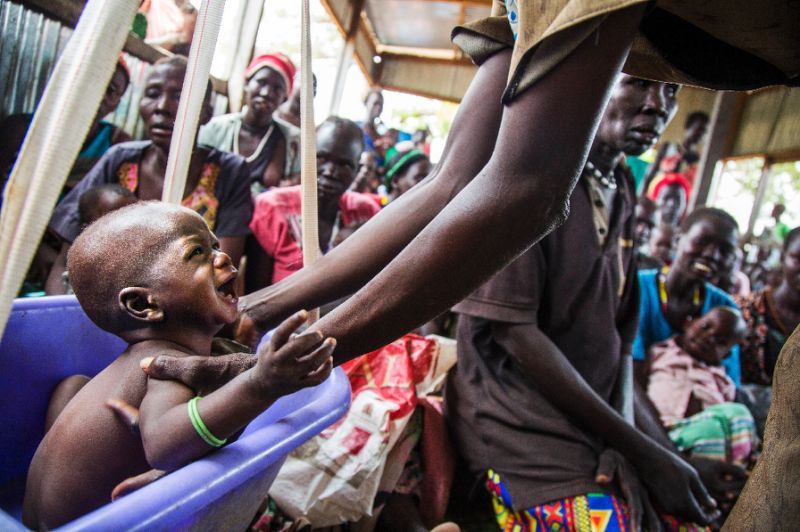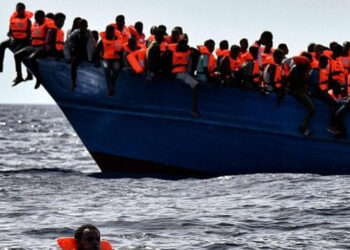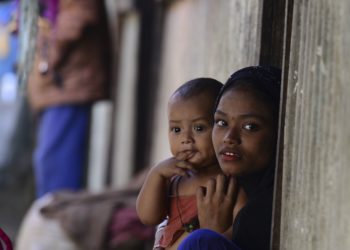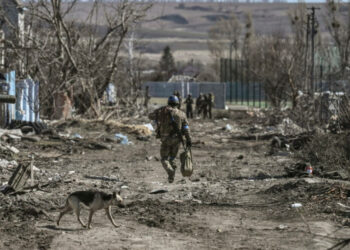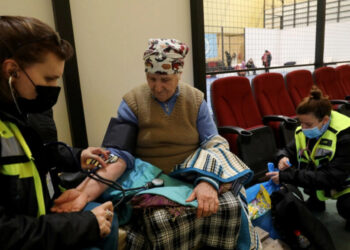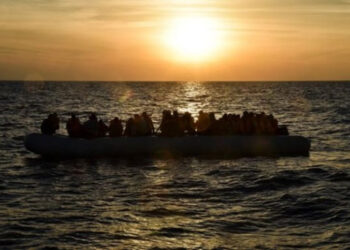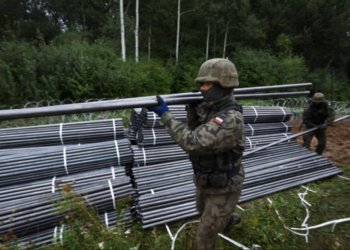South Sudan is seeing one of the worst displacement crises in the world. Since the conflict began in the country in 2013, some 400,000 people have been displaced internally and more than 2.2 million fled to the neighboring countries as refugees, according to the U.N. Refugee Agency (UNHCR).
Despite the dire situation – the risk of famine plagues the country along with continuous infighting – spontaneous voluntary returns keep taking place partially due to the signing of the latest peace deal which gave some hope that calm can return to the world’s youngest nation.
South Sudan gained independence from Sudan in 2011, but a civil war broke out in 2013 after President Salva Kiir accused his former deputy, Riek Machar, of plotting a coup.
In September, Kiir signed a peace agreement with rebel factions, and attacks against civilians have decreased significantly since then, according to the U.N., but the situation has remained volatile.
46% of all refugees around the 🌍 come from just 4 countries
🇸🇾 Syria 5,500,000
🇦🇫 Afghanistan 2,500,000
🇸🇸 South Sudan 1,400,000
🇸🇴 Somalia 1,000,000
65.6 MILLION people are forcibly displaced, 22.5 MILLION of whom are refugees https://t.co/Z7U6LqIJWk #FragilityForum18 pic.twitter.com/LdD4Nw12Fs— World Bank (@WorldBank) May 12, 2018
Eujin Byun, the UNHCR Spokesperson in South Sudan told The Globe Post that some 142,000 “spontaneous” refugees have returned to the country following the recent peace efforts.
“I want … to emphasize the fact that 85 percent of the 142,000, they are not able to go back to their place of origin,” she said.
The UNHCR has been able to identify and contact only about 20,000 of the returnees.
Even though the peace agreement was signed and violence has significantly subsided, the renewed clashes in the Western parts of the country present yet another challenge for those willing to return to their places of origin. Apart from security issues, another problem exists: in many cases, people’s property was destroyed or is occupied by others, Byun said.
“Most of those who return and found that their areas are not safe, or their home are occupied, are going back to the refugee camps,” she noted.
The UNHCR keeps maintaining a non-return policy for people in the region, which means no refugee should return to South Sudan because conditions there are not safe.
Nevertheless, Byun said that “Even though UNHCR non-return advisory remains valid, if South Sudanese want to go back to their country, is their right to return.”
She added that the UNHCR and other agencies have deployed their team to the border areas to be able to identify the needs of those who decided to reenter the country.
South Sudan is currently undergoing Africa’s worst refugee emergency with 1.9 million people displaced internally and 2.5 million seeking refuge outside its borders. pic.twitter.com/Co1s24eWue
— UNHCR, the UN Refugee Agency (@Refugees) September 25, 2018
Weighing Options
Like many other returnees, Fatna Denis, a mother of four from the country’s northern Unity region, was affected by conflict. She and her family were relocated to Mangateen, a Juba surburb, by the United Nations Mission in South Sudan (UNMISS) because they could not return to their home.
“The issue we face here in this area is water, it is now four days without water,” Denis told The Globe Post.
In most of Juba suburbs, residents buy water from water tankers which many internally displaced people (IDPs) can not afford. At the same time, water demand increases during the dry season, and water tankers cannot reach some places.
Nyanuk Alat, 45, is another former IDP who is taking care of 16 family members. She said her children have missed school for three days because there was no water.
“They were unable to go to school, not until I got some money from my sister in order to buy water, without water we cannot bath, we cannot cook,” Alat explained to The Globe Post.
John Dabi, the South Sudan Deputy Commissioner for Refugees Affairs, told The Globe Post that the South Sudanese government currently has no resources to provide for both IDPs and refugee returnees.
However, those who returned voluntarily are currently being profiled to get documented so that when the UNHCR gets on board, they would fund and support the areas where there is no water, while also building schools and health facilities.
According to Dabi, people are returning to South Sudan to see “whether the peace will really exist” and weigh their options.
Secondly, there are also economic challenges in the camps, the situation is not really conducive for people,” he said.
Conflict-Related Sexual Violence Plagues Regions of South Sudan


